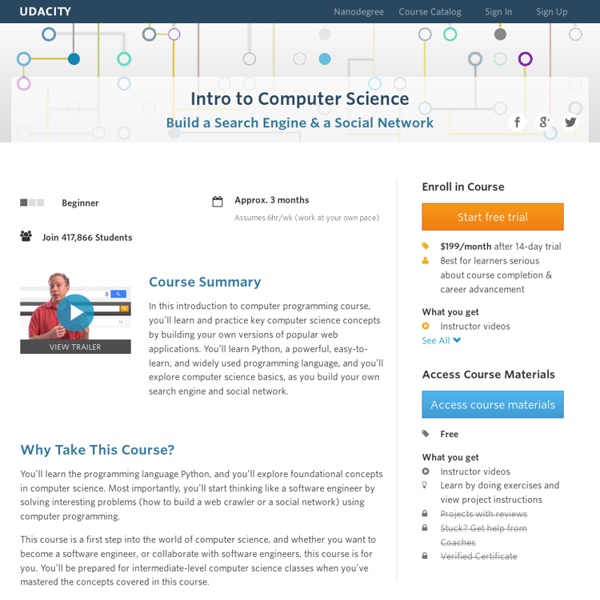Girls Who Code
Home - Floating University
MakerSquare - Programming Bootcamp and Coding School | Austin and San Francisco
6 Inspiring Websites That Teach You To Code
How to Code
During the month of December, Computer Science Education Week is promoted and is a national movement for students in K-12 schools. Computer Science is an important subject or concept to teach students because it will teach them: about meaningful contextthe learning process break down complex ideas into simpler ideascollaborate with otherskeep calm and move on when frustration sets insparks their creativity and critical thinking skills These are just a few benefits of learning to code. Students today are surrounded by so much technology, that they should have a better understanding of how it really works. Here are a few websites that will help students get started on coding. 1- Code Academy This by far the most popular of them all. 2- Girl Develop It One of many programs geared toward females who want to code, Girl Develop It is an international nonprofit that provides mentorship and instruction. 3- Udacity Computer Science Course ( not free) 4- Teamtreehouse 5-The Computer Club House
Future Learn | Tracking Innovation in Education
Basic Meta Tags
In Meta Tags - HTML Meta Tags we learned about the structure of meta tags. Now we'll look at some basic meta tags. Recommended Basic Meta Tags: Title Tag The title tag isn't a meta tag but is related to the discussion in this article. The title tag displays the text you see in the top bar of a web page. This tag is used by some search engines to decide how the page ranks in the results and/or as part of the web page listing. Description Meta Tag The text contained in the description meta tag is used by some search engines as the description for the web page in their results. meta name="Description" content="Basic HTML Code Articles - HTML Tutorials HTML code, code validation, HTML code validators, link checkers, cross browser compatibility, DOCTYPE declaration, character encoding, HTML document structure" Compare the coding above with the image below. Keyword Meta Tag The keyword meta tag contains terms a potential visitor would use to find the web page. Character Encoding Meta Tag
Coding Is the New Writing for Developing Self-Expression, Communication, Imagination and Solving Hard Problems | Dr. Idit Harel Caperton
Putting coding on a par with the basic 'three Rs' is a trend in education-talk recently (Reading, Writing, Arithmetic, and Lately Coding, NYT, May 10, 2014). However, we know from years of research that its utility goes well beyond the "schoolish three Rs" or "a great job or even instant riches" some day in the future. In my view kids must become coders and digital media creators rather than just information receivers and videogame players, because computational inventiveness, visualization and modeling, toward which coding is one fundamental first step, is essential for success in a world in which digital communication increasingly dominates civil society, business and commerce, science, entertainment, and human interaction around some of our world's most pressing problems --climate change, water scarcity, terrorism and security, global education and health. That was our vision about the power of coding in the 20th century.
European Universities Catch the Online Wave
Checking the Internet, however, one surprising similarity emerges: the long reach of some of their undergraduate lectures. Jörn Loviscach, a professor of mathematics and computer science in Bielefeld, has been putting his lectures on YouTube since 2009. The German-language math and computer science courses have become smash hits. His more than 2,000 clips, which include lectures, problem-solving tutorials, general mathematics instructions and even a special talk on relativity theory, have been watched more than 10.6 million times. More than 26,000 viewers subscribe to his channel. He says most of his viewers are students at other German universities, but — going by comments on his YouTube page — they also include parents of students trying to help their kids, professional engineers grappling with mathematical concepts and a sprinkling of the simply curious. “I realized that there are people out there who are interested in the material, people who need to learn it,” Mr. This year Mr. Mr.



